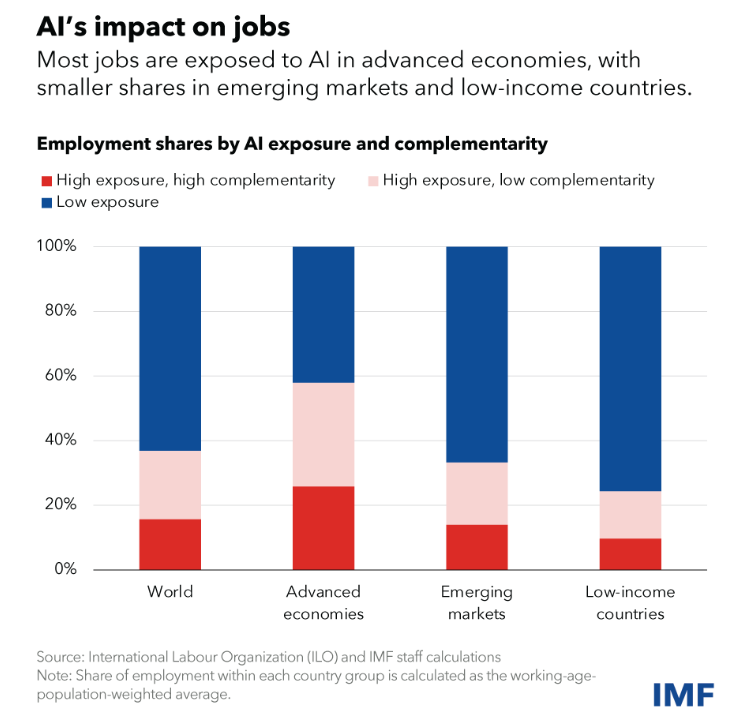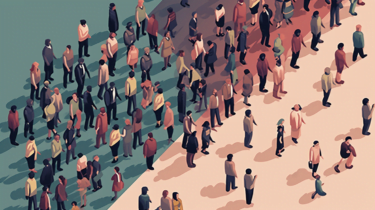The International Monetary Fund (IMF) warns that AI could affect nearly 40 percent of jobs worldwide, and as much as 60 percent in advanced economies.
According to the report, advanced economies in particular will feel the benefits and risks of AI sooner than emerging and developing economies, primarily because their employment structure is more skewed toward cognitive-intensive tasks.
Advanced and more developed emerging economies should invest in AI innovation and integration while improving the regulatory framework to maximize the benefits of increased AI use.
For less prepared emerging and developing economies, building basic infrastructure and creating a digitally literate workforce is critical.
According to the report, all economies should build social safety nets and retrain workers whose jobs are threatened by AI to ensure that AI is successfully integrated.
Income and wealth inequality may worsen
The report suggests that AI will impact income and wealth inequality. AI displacement risks extend to higher earners. However, potential AI complementarity is positively correlated with income. The impact on labor income inequality hinges largely on the extent to which AI displaces or complements high-wage workers.
If productivity gains are sufficiently large, income levels could rise for most workers. But if the complementarity between AI and high-income workers is strong, and returns to capital increase wealth inequality, labor income inequality could rise.
The researchers also found some consistent patterns in AI exposure. Women and college graduates are more likely to be affected by AI, but also more likely to reap the benefits of AI. Older workers may be less able to adapt to the new technology. An earlier study also found that women are most likely to lose out as AI enters the workforce.
There's still no clear picture of AI's impact on the labor market
The IMF report concludes that while AI has the potential to increase productivity and growth, its impact on the economy and society remains uncertain. It is likely to lead to the displacement of jobs and the creation of new roles, which could exacerbate existing economic inequalities.
IMF Managing Director Kristalina Georgieva also stresses that AI could exacerbate inequality. She urges policymakers to prevent further social tensions through social safety nets and retraining programs.
OpenAI CEO Sam Altman, whose company is driving AI development in partnership with Microsoft, expects AI to have a rapid impact on the job market, with the big question being how quickly and flexibly social structures will adapt to the new circumstances.








